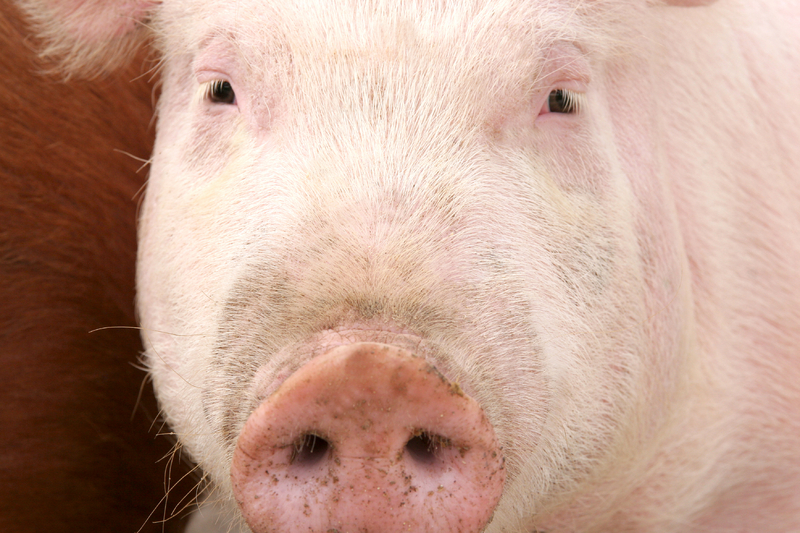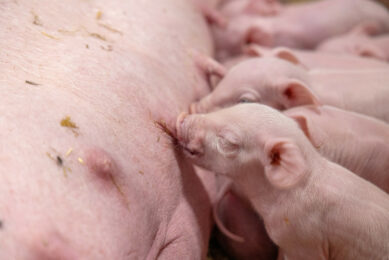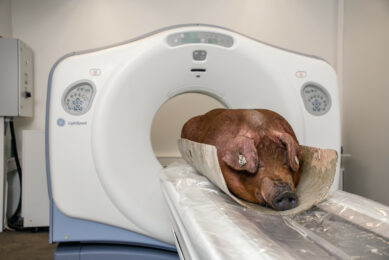ISU: Mutations led to pigs lacking immune systems

Animal science researchers at Iowa State University, in Ames, IA, United States, have identified a pair of genetic mutations that cause immune deficiencies in pigs that make them uniquely good models for testing potential medical therapies for people.
The discovery of the mutations will pave the way for researchers to further develop a genetic line of pigs with severe combined immunodeficiency (SCID) at Iowa State and to improve husbandry and management practices for the pigs.
Christopher Tuggle, an animal science professor, said pigs born with SCID make ideal models for studying vaccines, potential cancer treatments and stem cell therapies for human medicine. That’s because their deficient immune systems can’t reject cells introduced experimentally.
Excellent model for human biology
“The pig is known to be an excellent model for human biology due to its similar size, physiology and genetic make-up,” Tuggle said. “This shows it has high potential as a model for many areas of testing in regenerative medicine, a new medical specialty that repairs disease instead of treating symptoms.”
Tuggle was part of a research team that published findings recently in the Journal of Immunology, a peer-reviewed academic publication, identifying two genetic mutations in pigs that lead to offspring with SCID. The editors of the journal highlighted the publication for its importance.
You may also find interesting:
Is human nutrition the new frontier for pig feeding?
For many, inositol will be a new compound they’ve not heard much about, yet it is increasingly being discussed both within the research community and amongst swine nutritionists.
Impact of infectious disease
In collaboration with researchers at Kansas State University, ISU scientists first identified pigs with SCID around 4 years ago as part of an ongoing study of feed efficiency in pork production and the impact of infectious disease. The project, led by animal scientist Jack Dekkers, did not set out to breed a line of pigs with SCID, but the researchers quickly realised their value when some pigs did not show an immune response when exposed to a viral disease.
The National Institutes of Health awarded the researchers a $2.5 million grant earlier this year to improve management practices for the SCID pigs, which require a range of special considerations.
How to raise pigs in clean environments
“A major challenge now is to figure out how to raise these pigs in extremely clean environments,” Tuggle said. “Our new NIH-funded project aims to meet that challenge, as well as improve upon the existing model.”
The project has attracted the interest of medical researchers across the country who want to test new regenerative therapies, Tuggle said. The SCID pigs hold particular promise for gauging the ability of stem cell-derived therapies to repair damaged tissues.
You may also find interesting:
Genetically modified pig organs for use in humans
US researchers say that a future gene-editing method might make swine organs suitable for use in humans, by trimming out potentially harmful virus genes.
Tuggle said scientists are working on methods to use someone’s own stem cells to help heart attack victims, but mice with SCID are unreliable models for testing such advances. The SCID pigs might have a role to play in developing such therapies, he said.
“The data from pigs is likely to be much more accurate for predicting what stem cell derivatives will do in humans,” he said.











